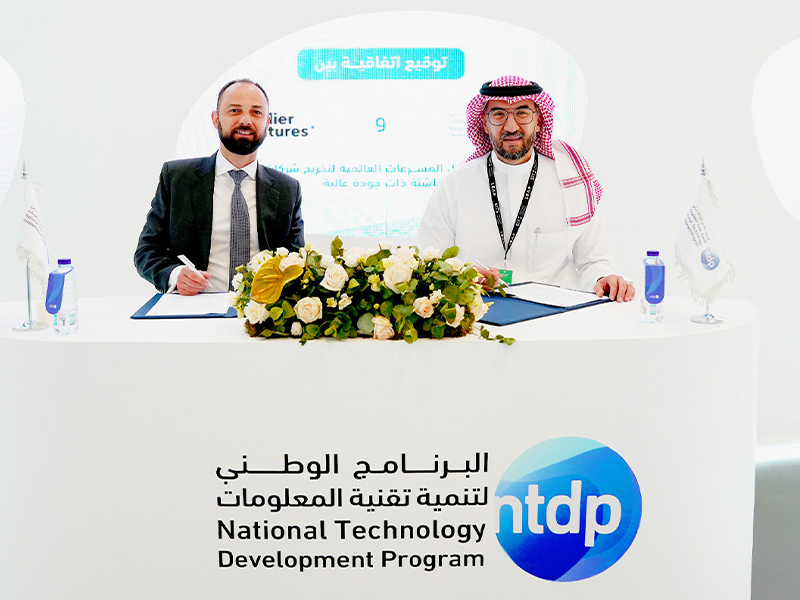Finding a co-founder can be one of the most challenging aspects of building a founding team. However, two founders raise the chances of startup success – with a co-founder, you will likely raise 30 per cent more investment and triple the customer growth rate. Yet when it comes to the heart of building a founding team, there is a myth that the co-founders need to have a strong friendship.
Truth be told, this is not essential. When Jamie and I started Outlier Ventures, we did not know each other at all – Jamie scouted me on Linkedin. What is essential is that things work on a personal level. As founders, there will always be good moments, bad moments, and healthy tensions. While upfront friendship might not be required, good chemistry between co-founders is essential – as is the shared ability to step back and reflect.
Besides that, there are four other things we relay to founders when they are in the process of building out their teams.
What matters in a commercial founder
While having a commercial founder with no technical skills is possible, some affinity with technology is required. However, what matters is being coachable and a combination of being “ambitious yet humble”. Being extremely ambitious means believing, “I want to create this thing that nobody’s ever seen.” Yet you can still be humble and open to feedback. If you reject all input, you will never grow.
If you’re overly humble but not ambitious, you’re not likely to build something as big as someone who’s ambitious. A founder is more likely to be successful if they can take in the critical insights being given to them. This is why being able to listen is an important skill. We know that teams with more than one founder tend to outperform solo founders by 163 per cent and for founders to work well together, each has to be open to change.
In any case, an absolutely key function of a commercial founder is to have the vision and the passion to propel the company forwards in the future. They are dreaming big: they are not just thinking about the problems that can be solved today, but about all that the company could achieve in the years or decades to come. The commercial founder may also take on the role of CEO.
The primary role of any effective startup CEO is to set the strategy and direction; as well as living and breathing the culture and values of the startup. This also extends into making key hires and leading both in the short and the long term, making key managerial and operational decisions, and making sure that everybody (from investors to customers to employees) is being served.
What matters in a technical founder
While the technical lead is not always the founder, it can be helpful if they are, as someone who holds both the technical skills and the vision can be compelling. Experience having built non-trivial software in other roles is a huge plus. A technical founder might have strong Web2 technical skills but still be learning Web3 technical skills – they must be eager to learn, able to pick up things fast and have an open and flexible mindset.
Due to the rigidity of entry requirements at big tech companies, they automatically infer a certain calibre of technical skill. If someone can say, “Well, I’ve been a developer at Google” it is a guarantee they are capable. We do not restrict our search for technical founders for those with Big Tech backgrounds. Still, we consider them strong indicators – data also shows that teams with at least one founder from Amazon, Apple, Facebook, Google, Microsoft or Twitter went on to perform 160 per cent better than other companies.
Other strong indicators might be experience at previous startups. Regardless, with any technical founder, the key questions we ask are their capability, coachability, and whether they will benefit from what we bring. Our technical due diligence process involves examining code repositories, high-level architecture diagrams, early product demos, and their technical team hiring plan, if available.
The technical founder may also take on the role of CTO. The role of any effective startup CTO is to communicate the vision and mission to technical team members, ensuring that the broader ‘why’ of the mission is crystal-clear. A CTO is also responsible for managing and developing the technical side of the startup’s operation, and making key decisions around how the vision is going to be implemented from a technological viewpoint.
An example of a stellar team
One of the projects that demonstrates an exemplary team is the one leading Boson Protocol, a foundational primitive that enables Decentralized Autonomous Commerce at scale and the exchange of digital value for real world products, services or things through an elegant mathematical game invisible (yet auditable) to the end user which enables minimized arbitration, cost and trust.
Justin Banon and his team joined our Web 3 Accelerator in August 2019 to conceptually develop Boson Protocol in the depths of crypto winter, when there was little appetite and capital for token based economies let alone something as ambitious as dCommerce. Impressed by the team’s deep technical expertise and previous commercial success in the loyalty space, building a billion dollar loyalty points company, we introduced them to a number of experts in token design and game theory to test and develop their hypothesis.
These experts all saw the enormous potential of Boson and have become long-term advisors and in some cases investors. These several months of work were bootstrapped with the small amount of capital we seeded them and the team showed huge character and perseverance to survive the winter and come out with a working prototype into the 2020 Summer of DeFi as the market picked up.
As NFTs became the dominant narrative in crypto we were already ahead of the curve with the team unlocking several million in funding, and key strategic partners and investors, now finding themselves over 4000% oversubscribed in their private sale as they gear up to a TGE (token generation event) within the next two months.
Don’t forget marketing
Making yourself visible through communicating a message or ideas, or thought leadership, is vital – it can start with content marketing. It can be easy to underestimate the importance of having a group that cares about what is being built. The team becomes so busy creating an MVP or API that when it comes to launching it, it becomes apparent that there is no audience to notice.
To counteract this, it’s crucial to develop a profile through marketing. It can be hugely effective to get people to use what is being built with the platforms there. A lot of the startups we work with are not making exclusively business-to-consumer products – instead, they are also building B2B businesses or maybe even business-to-developer.
Building a relationship with prospective or existing customers starts with marketing. In one startup survey around marketing challenges in 2022, customer acquisition rose to the top as the most commonly stated challenge, while gaining new prospects and leads came in second place. It is never too early to start sharing your insights and observations as a founding team as a way to attract and build new audiences.
Knowing your roles
At the start, it is crucial to clearly outline people’s roles, responsibilities and expectations to prevent issues like overlap, wasted time, as well as unclear accountability if certain areas start to falter. Formally allocating areas of responsibility helps investors and external stakeholders to take the founding team more seriously. It also helps co-founders to avoid internal conflict, which one study showed was the case for 43 per cent of founder breakups.
Within founding teams, it is common to wear multiple hats. Yet as the business grows, so too does the team and the project, and the time comes to transfer some of those roles to others. Whether it is the accounting, marketing, or operations function – sometimes it requires founders to recognise that it is time to transfer the function to another member.
Operating as an effective startup team means understanding your roles and recognising when to assign specific duties. It is not just a time management exercise but an attention management exercise. Being conscious and deliberate about your time and attention and passing on duties when required means you can free yourself up for the things only you can do as a founder.
All in all, building a startup is not an overnight process – it is a journey where the founding team is often the ingredient that determines the strategy and the approach. Individuals don’t build great things – teams do. Hopefully, the above can provide insight into creating the strongest possible founding team for the journey.
In this piece, you’ve learned about crucial qualities in a commercial and technical founder, what makes a stellar team and the importance of clarifying roles and responsibilities. Here are our top tips:
- If you’re a commercial founder, aim to be “ambitious yet humble”
- If you’re a technical founder, remember that a technical due diligence process typically involves examining code repositories, high-level architecture diagrams, early product demos, and their technical team hiring plan – have these ready to go
- Make yourself visible through communicating a message or idea: you can start with content marketing
Further reading:
- The Founder’s Dilemmas: Anticipating and Avoiding the Pitfalls That Can Sink a Startup – by Noam Wasserman
- Built To Last: Successful Habits of Visionary Companies – by James Collins
- The Five Dysfunctions of a Team – by Patrick Lencioni



